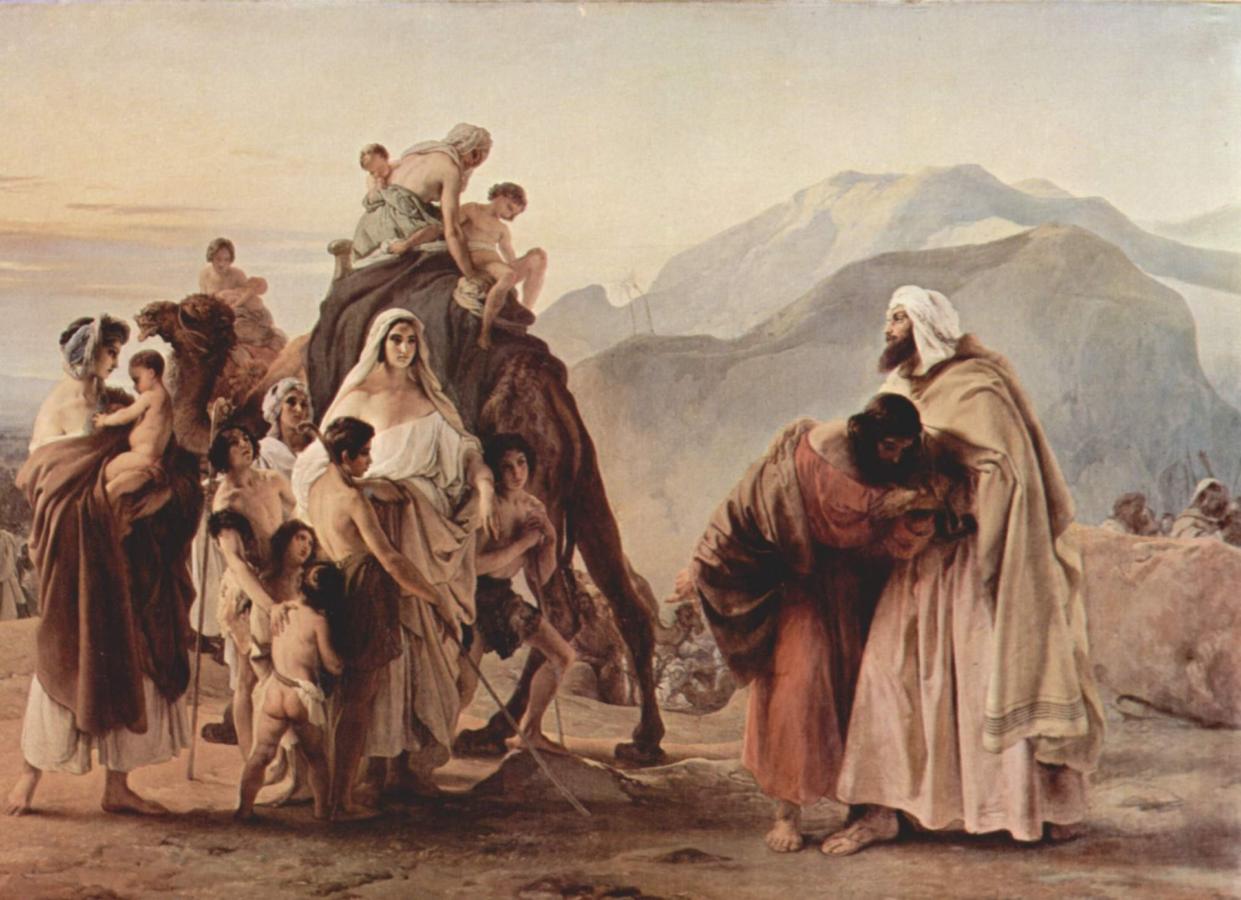Commentary on Parashat Vayetzei, Genesis 28:10-32:3
Parashat Vayetzei begins with a shattered Jacob fleeing for his life. His twin brother, Esau, has threatened to kill him for stealing his birthright. So Jacob leaves his birthplace for Haran, where his mother’s family lives. As he departs, he likely believes that his relationship with his only sibling has forever ended and he does not know if he will ever see his parents again. We can almost hear Jacob asking how he could ever hope to rebuild his life after such a loss.
After stopping for the night, Jacob has a dream in which angels ascend and descend a ladder connecting heaven and earth. The vision concludes with God’s reassurance. “Remember, I am with you: I will protect you wherever you go and will bring you back to this land. I will not leave you until I have done what I have promised you” (Genesis 28:15). God must reassure Jacob four times in one verse that he is not alone: I will be with you, I will protect you, I will return you home, I will not abandon you. This fourfold promise underscores how deeply Jacob must have felt that he was all alone in the world.
Jacob continues on his way, eventually arriving in Haran, where over the next 20 years he establishes a family, prospers and becomes powerful. But with all those accomplishments, we learn that Jacob’s experience of loss, and the attendant fear that accompanies it, is undiminished. At the close of this week’s Torah portion, it is the scared young Jacob from decades ago, not the mature adult Jacob, who reemerges to meet his brother again.
Before he meets Esau, Jacob divides his retinue into two camps, thinking that if Esau attacks one, the other may yet escape. He then sends his family to the far side of a river, leaving him alone just as he was when he left home 20 years earlier. Alone with his fears, Jacob has a night-long wrestling match with a Divine being that ends with Jacob extracting a blessing from this being as the price for releasing him: “Your name shall no longer be Jacob, but Israel, for you have struggled with Divine and human beings and have prevailed” (Genesis 29). Through this struggle, God reassures Jacob that he has the fortitude to withstand an encounter with Esau.

Help us keep Jewish knowledge accessible to millions of people around the world.
Your donation to My Jewish Learning fuels endless journeys of Jewish discovery. With your help, My Jewish Learning can continue to provide nonstop opportunities for learning, connection and growth.
It’s difficult to imagine a better support system than God. But even with God’s constant reassurance and blessing, Jacob is not immune to the fear, despair, and confusion that often come with loss. Like Jacob, those of us struggling with the loss of a loved one can become paralyzed by the experience, wondering how we will survive, how we will manage financially, how we can go on to create loving bonds with others, and how we will deal with all manner of practical concerns. And like Jacob, we may also be traumatized by the experience of an earlier loss, discovering that years later we may find ourselves triggered again by a death we may have believed we had gotten over. Indeed, nothing offers greater life purpose than having others who are a steady presence in our lives.
Parashat Vayetzei reminds us that when we have that kind of reassuring presence — whether in God, a friend, or a community — it becomes easier to stitch a new pattern of life together. While grief is an inherently lonely and individual journey, we need not experience it alone.
This article initially appeared in My Jewish Learning’s Reading Torah Through Grief newsletter on Dec. 2, 2022. To sign up to receive this newsletter each week in your inbox, click here.
Looking for a way to say Mourner’s Kaddish in a minyan? My Jewish Learning’s daily online minyan gives mourners and others an opportunity to say Kaddish in community and learn from leading rabbis.



